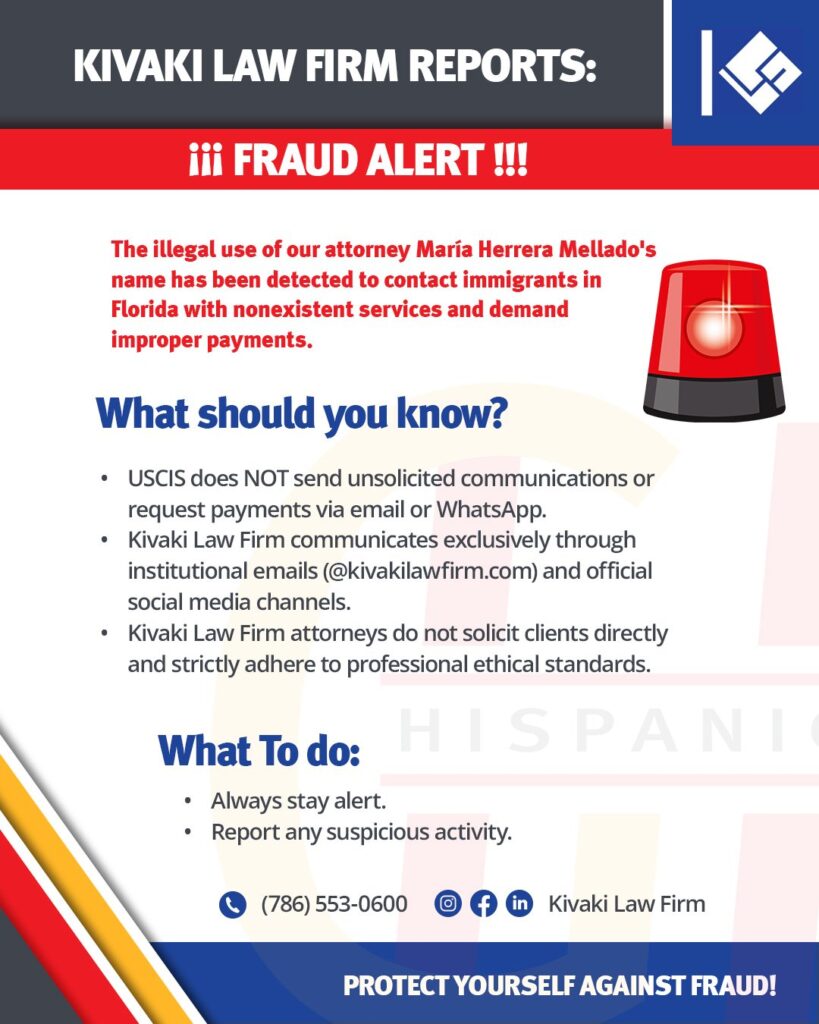Immigration fraud in the United States has significantly increased in recent years, primarily fueled by the advent of social media platforms where unscrupulous entities, often posing as attorneys or legal professionals, deceive immigrants. These scammers exploit the vulnerabilities of individuals seeking legal assistance by making grandiose promises of expedited services, guaranteed approvals, and other false assurances. As a result, many immigrants suffer both financially and emotionally, leading to a deterioration of trust in the U.S. legal system. Notably, unauthorized notarios and paralegals have emerged as key perpetrators in this troubling landscape.
The rise of social media has effectively transformed these platforms into fertile ground for fraudsters. Immigration Attorney María Herrera has highlighted this concerning trend, noting that fraudulent practices have become commonplace online. Common tactics employed by these scammers include creating fake profiles using stolen credentials to impersonate legitimate attorneys, running deceptive advertisements that promise quick resolutions, and targeting immigrants through language-specific community groups. Victims often face untraceable transactions, as payments are typically made through cash apps, leaving them vulnerable and without the means to secure refunds or accountability.
Current measures implemented by social media platforms, such as Facebook, Instagram, and TikTok, to combat immigration fraud have proven inadequate. These platforms often only remove fraudulent accounts and ads retroactively, following reports from victims rather than proactively searching for potential scams. Federal and state agencies also struggle to keep pace with the sheer volume of online fraud, creating an environment where victims often feel helpless. The disorganized response to this growing challenge highlights the urgent need for a more robust and systematic approach to address online immigration fraud effectively.
To combat the rampant immigration fraud stemming from social media, a proposed solution is the establishment of a Federal Office for Immigration Fraud Prosecution. This specialized office would be tasked with investigating and prosecuting fraudsters operating within the online realm using advanced tracking tools. Furthermore, the office would be responsible for collaborating with social media companies to better monitor, flag, and eliminate deceptive ads and accounts. In addition to legal actions, the office would carry out awareness campaigns aimed at educating immigrants about how to identify scams and validate the credentials of legal service providers.
While systemic changes are crucial, individual immigrants must also take steps to protect themselves from falling victim to scams. Some proactive strategies include verifying the credentials of legal professionals through state bar associations, avoiding responses to social media advertisements, utilizing trusted payment methods to ensure payments can be traced, and reporting suspicious activities to appropriate authorities, such as ICE or USCIS. These precautions are vital to empowering individuals and ensuring they make informed decisions regarding legal assistance.
In tandem with these measures, Congress should enact stricter penalties for immigration fraud offenses and enhance accountability for unauthorized individuals marketing their services online. Social media platforms, for their part, need to prioritize the swift removal of fraudulent accounts and create user-friendly reporting tools for suspicious activity. A transparent partnership between these platforms and enforcement agencies is essential for effectively addressing scams at their origins. The stakes in this issue are exceedingly high, as inaction allows fraudsters to continue exploiting vulnerable communities, undermining the integrity of the legal system and harming the individuals who depend on it for support.
With the alarming rise of immigration fraud schemes operating through social media, it is imperative that immediate action is taken to protect immigrants and uphold their rights. Establishing a dedicated federal office focused on prosecuting immigration fraud and enhancing awareness within immigrant communities would not only provide critical safeguards but also restore trust in the mechanisms intended to protect and serve them. Immigrants and their advocates must be vigilant while also seeking out resources available to report fraud, such as filing complaints with the USCIS, FTC, or their respective state bar associations. The message is clear: the urgency for decisive action to combat immigration fraud and protect immigrant communities cannot be overstated.

